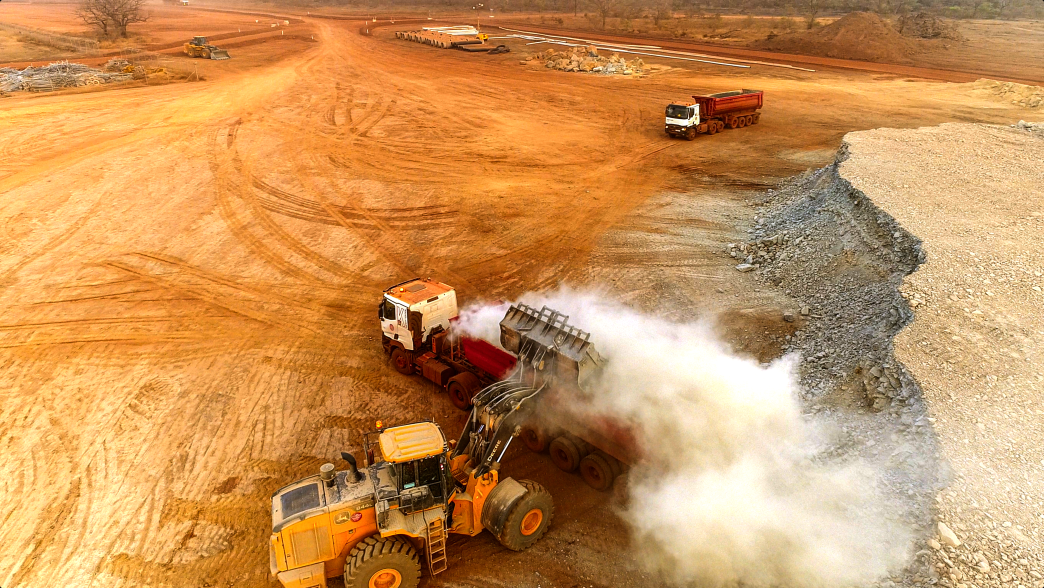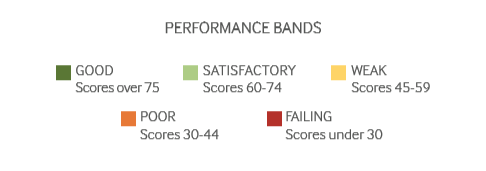
2021 Resource Governance Index: Senegal (Mining)
Français »
Assessed for the first time in the 2021 Resource Governance Index (RGI), Senegal’s mining sector scored 75 points out of 100. This score, which placed the sector in the “good” (highest) performance band, results from standards and practices that are at least satisfactory in each of the index’s three components: value realization (70 points), revenue management (80) and enabling environment (75).
Key messages:
- The overall score of 75 points for Senegal’s mining sector reflects the fact that the country has a good overall enabling environment.
- The sector’s revenue management component scored the highest of the three components, with 80 out of 100, primarily due to good rules and practices in the disclosure of data on the national budgeting of mining revenues and on debt.
- The procedures for awarding mining titles are relatively clear, but there is significant room for improvement in the related transparency mechanisms.
- The government completed the rules for the transfer of mining revenues to local authorities in 2020; it should now commence the transfer of revenues to subnational authorities.
- Scores for both the mining sector and the oil and gas sector (assessed in a separate profile) are in the RGI’s highest performance band. However, the hydrocarbon sector has scored better because it is still in its infancy and many of the RGI indicators are therefore not applicable.
Senegalese authorities can continue to improve the governance of the mining sector by taking the following courses of action:
1. The Senegalese government:
- Require employees of state and state companies to make public their holdings in companies operating in the mining sector; require the publication of information on the beneficial owners of mining titles; and disclose this information on all titles.
- Implement subnational transfers to communities from mining equalization funds.
- Mandate legislative review and disclosure of MIFERSO’s annual reports and consider the establishment of a MIFERSO board of directors that is independent of the state.
2. MIFERSO: Disclose and publish a code of conduct on its website.
3. The Ministry of Mines and Geology:
- Mandate regular and effective disclosure of the list of applicants for mining titles, and consider the institution of appeal provisions in the procedures for granting titles.
- Fully publish the mining contracts, including annexes and amendments, as well as any agreement that binds the state or the state company and the mining companies.
- Disclose local content baseline and impact assessment studies and associated strategy documents; establish a multi-stakeholder body to monitor the national policy on local content in the mining sector.
4. The Ministries of Budget and Finance and Ministry of the Economy: Publish on their websites the budgetary revenue projections containing mining revenues and the UEMOA and ECOWAS convergence reports on Senegal.
5. The Court of Auditors: Publish the annual reports for the years 2018 to 2020, including the conclusions of the audit of the tax administration.
6. The Ministry in charge of the Environment: Adopt the obligation to make environmental and social impact studies and environmental and social management plans available to the public and consider their disclosure on an online platform. RGI experts understand that the Environmental Code is currently being revised and may consider the requirement to publish these documents.
7. Senegal EITI: Include an integrated presentation of project-by-project data in the most advanced open data format (API) on its open data portal.
The 2021 RGI assesses how 18 resource-rich countries govern their oil, gas and mineral wealth. The index composite score is made up of three components. Two measure key characteristics of the extractives sector – value realization and revenue management – and a third captures the broader context of governance — the enabling environment. These three overarching dimensions of governance consist of 14 subcomponents, which comprise 51 indicators, which are calculated by aggregating 136 questions. For more information on the index and how it was constructed, review the RGI Method Paper.



